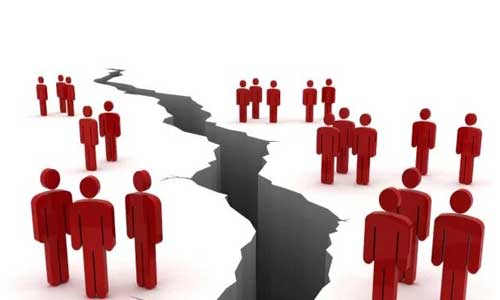Although we have had some good achievements in last two decades in deferent fields, there were no admirable achievement in national oneness in Afghanistan. As yet, the ethnic divisions and tribal hatreds act as barrier on the way to reaching common goal or national unity in the country.
Now, despite serious concerns over repeat of horrific domination of Taliban and return of the Islamic Emirate in the Afghanistan, there seems no organized harmony in the country to resist against this process. Unfortunately, the Doha Agreement between the United States and the Taliban has suddenly turned a terrorist and insurgent group into alternative power to impose their extremist political and social order in the country. Fear of a return to repression era has become more acute than ever, and Afghans are now worried about losing the gains of the past two decades achieved by vast human and fiscal sacrifices. The public opinion are extremely concerned about overthrown of the republic, women’s rights and freedoms, religious minorities, civil liberties, freedom of the media and so on. Although there is a wide commonality between the demands, concerns and views of the people and government about the prospect of reconciliation with the Taliban, in practice there is a large gap and deep mistrust between the government and people. The question is, why the people are not aligned with the government, despite widespread similarities in demands and concerns? Why the government is not successful in uniting people on the axis of the common demands?
In response to the abovementioned question we may need to evaluate the past so as to move forward in the future. Unfortunately, we have had a lot of shortcomings over the past years which led to the current situation. Many elements have been blamed for systematic and relentless effort to limit the power within certain group and thus increase ethnic and tribal divisions and hatreds. One of the most significant examples and provisions of republicanism and democracy is transparent, fair and democratic elections. Transparent and fair elections are the soul and essence of a democratic system.
Transparent elections allow the people to remove the ruling team from power and replace alternative groups with better and better programs and approaches if they are dissatisfied with the functioning of the government. Transparent elections, on the other hand, pave way for people to make the power conditional to public vote and prevent from any unwanted dictatorship. In short, transparent and free elections are the most important and main example for rule of will of people over their destiny. This is the essence and spirit of a democratic system in which the people are the main holders of power but unfortunately the weak management and inability of IEC has created deep mistrust and gaps between people and government. Therefore, this must be a good lesson for the future that the weak election system can inflict irrecoverable blow on unity and also democratization process in the country.
The second factor which enormously created distrust and gaps between government and people was weak interaction with civilian demands and demonstrations in recent years.
In the past six years, Afghanistan has witnessed the emergence of modernist and civic movements that have explicitly made demands for justice to the government. The fight against corruption, the provision of security, the denial of discrimination and the inclusion of justice on the government’s agenda were the demands made by these protesting and civil movements.
Unfortunately, we have not been successful to give proper responses to any of the demands of the protesting and civil movements during these years. Sometimes they were responded with suppression, threats, legal accuses which is the worst possible confrontation with these popular movements. In fact, the social movements are the most dynamic social forces that any democratic countries need to them and so instead of confronting these movements responsibly, they must not have politicized them accusing as foreign agents.
The next problem which has largely created gaps between government and people and even strategic partners was corruption. In recent years, the increasing corruption has been frequently raised as the biggest challenges of a democratic system, good governance, and reaching to development and prosperity. Although many efforts have been made in last few years, practically they did not produce enough fruits to satisfy people. The government has been repeatedly blamed for anti-corruption show rather than a serious and decisive agenda or action. In public opinion, from top to bottom had been blamed for the most shocking moral and administrative corruption. However, most of them were not publically prosecuted. Therefore, the government approach against the mentioned corruption is now interpreted as “selective justice,” or tool of pressure on political opponents and a means of repression and intimidation.
In general, the government need to review the past and move forward for the future. If the people of Afghanistan, as a nation, unite and mobilize against threats of the current peace process, no one can engineer or impose a process with this amount of threat and ambiguity. Given the many instances in history, it has always been difficult to impose a destiny on Afghans because of unique cultural and social feature, especially when united at the national level. At a time when most of Afghanistan’s strategic partners and most domestic political factions are in line with the current process, there is only one chance to resist and avoid repercussions: uniting the people on axis of common demands.
Home » Opinion » Why We Are United in Disunity?
Why We Are United in Disunity?
| Mohammad Zahir Akbari

